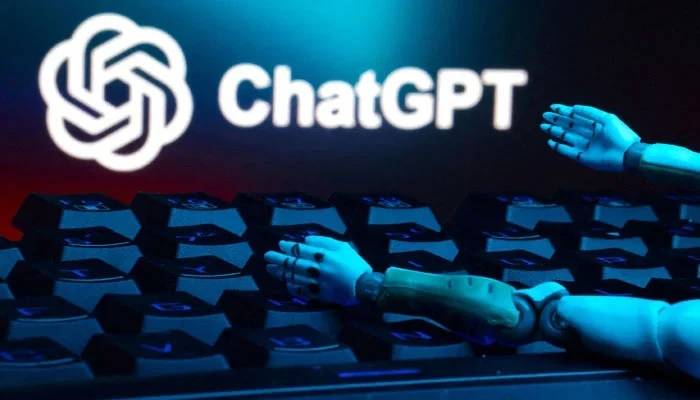ChatGPT's viral photos highlight AI copyright concerns

Stay tuned with 24 News HD Android App

Fans of Studio Ghibli, the renowned Japanese animation studio behind classics like Spirited Away, were thrilled this week when a new version of ChatGPT allowed users to transform popular internet memes or personal photos into the unique style of Ghibli co-founder Hayao Miyazaki.
However, this trend has also sparked ethical concerns regarding artificial intelligence tools trained on copyrighted creative works, raising questions about the future impact on the livelihoods of human artists. Miyazaki, 84, known for his hand-drawn animation and enchanting storytelling, has voiced skepticism about AI's role in animation.
Janu Lingeswaran, an entrepreneur from near Aachen, Germany, wasn’t focused on these concerns when he uploaded a photo of his 3-year-old ragdoll cat, Mali, to ChatGPT’s new image generator on Wednesday. He then asked the tool to recreate the image in the Ghibli style, resulting in an anime version of Mali that resembled the feline characters in Miyazaki’s films like My Neighbor Totoro and Kiki's Delivery Service.
“I really fell in love with the result,” Lingeswaran said. “We’re thinking of printing it out and hanging it on the wall.”
Other users shared similar creations, transforming iconic images into the Ghibli style, such as Turkish Olympic pistol shooter Yusuf Dikec in a casual T-shirt and jeans after winning a silver medal, or the infamous “Disaster Girl” meme, featuring a young girl smiling as a house fire rages behind her.
OpenAI, the creator of ChatGPT, has largely embraced the “Ghiblification” trend. CEO Sam Altman even changed his profile picture on social media platform X to a Ghibli-style portrait. In a technical paper released on Tuesday, the company said it would take a “conservative approach” in how it mimics individual artists' aesthetics.
“We added a refusal which triggers when a user attempts to generate an image in the style of a living artist,” OpenAI stated. However, the company noted it permits broader studio styles, which have led to “delightful and inspired fan creations.”
Studio Ghibli, however, declined to comment on the matter.
As users continued posting their Ghibli-inspired images, Miyazaki’s previous comments about AI animation resurfaced. In 2016, after being shown an AI demo, Miyazaki expressed his disgust with the technology. The demo involved an AI animation depicting a body dragging itself by its head, with the demonstrator explaining how AI could generate grotesque movements that humans couldn’t imagine, such as zombie-like motions.
Miyazaki responded by sharing a personal story.
“Every morning, I see my friend, who has a disability. It's so hard for him to do something simple like a high five because his muscles are stiff,” Miyazaki said. “Thinking of him, I can’t watch this and find it interesting. Whoever creates this has no understanding of pain.”
He added that he would “never wish to incorporate this technology into my work” and that it was “an insult to life itself.”
Josh Weigensberg, a partner at law firm Pryor Cashman, pointed out that one of the main issues raised by the Ghibli-style AI art is whether OpenAI’s model was trained using Miyazaki or Studio Ghibli’s works. This raises questions about whether OpenAI had a license or permission to use those works for training.
Weigensberg also emphasized that while “style” itself is not copyrightable, elements of a work could be, and sometimes AI-generated art might replicate distinct and identifiable features from Ghibli films.
Karla Ortiz, an artist who grew up watching Miyazaki’s films and is suing AI image generators for copyright infringement, criticized the trend as yet another example of companies like OpenAI exploiting artists.
“This is using Ghibli’s branding, their name, their work, their reputation, to promote OpenAI products,” Ortiz said. “It’s an insult. It’s exploitation.”
Ortiz also expressed outrage when the Trump administration joined the meme trend, posting a Ghibli-style image of a woman arrested by U.S. immigration agents on the White House’s official X account. Both the White House and OpenAI did not immediately respond to requests for comment on the image’s creation.
“To see something as brilliant as Miyazaki’s work be distorted for something so distasteful is appalling,” Ortiz wrote on social media, adding that she hoped Studio Ghibli would take legal action against OpenAI.
